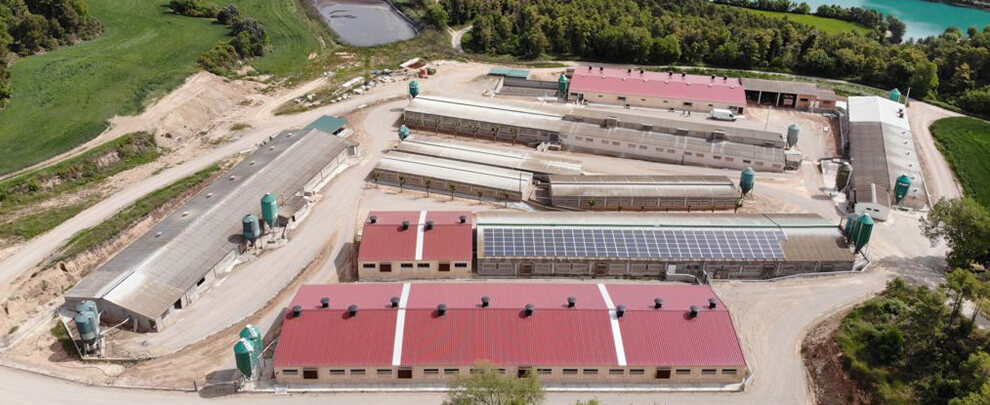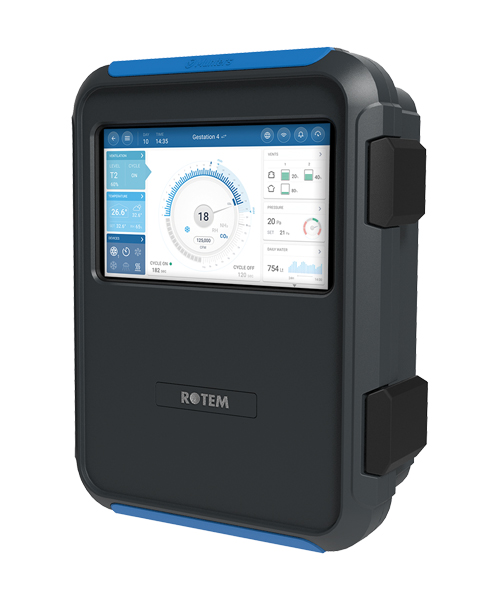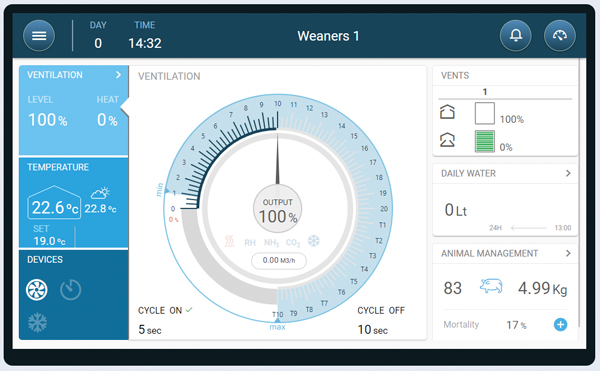Blog
Blog

Selecting the right climate controller for swine barns
05 of March of 24 - News
The requirement for pig produces achieve successful results are changing with time. Improvements in nutrition, genetics, challenges to avoid diseases and the increasing requirements for constant control of the environment inside and outside de barns are challenges that all producers are facing. In other hand the information that is available and the new technologies that are supporting the production of swine are improving in an impressive rate.
In swine farming, the importance of climate control is critical. Swine barns require precise environmental conditions to ensure the well-being and optimal growth of the animals. Adjusting the right balance of temperature, humidity, and ventilation is essential for the health of the pigs and the profitability of the farm. Selecting the appropriate climate controller is a critical decision that can significantly impact the overall success of a business.
There are several factors that farmers need to consider. Understanding the complexity of the project, the equipment that are going to be manage by the controller and the possibility to use the information that is generate, allowing the farmer, owner and technical support to take actions are criteria that are extremely important:
The first basic consideration is the ability of the controller to regulate temperature effectively. Pigs are sensitive to temperature fluctuations, and maintaining a consistent temperature within the barn is crucial. A good climate controller should have precise temperature control capabilities, since temperature variations can be very harmful.
Humidity control is another vital aspect of climate management in swine barns. High humidity levels can lead to discomfort for the animals and create an environment conducive to the growth of harmful microorganisms. On the other hand, low humidity levels can cause respiratory issues. An ideal climate controller should have the capability to monitor and adjust humidity levels, ensuring they remain within the optimal range for the pigs.
Ventilation is equally important in swine barns. Proper air circulation is necessary to remove excess heat, moisture, and odors from the barn. Insufficient ventilation can lead to poor air quality, which can adversely affect the health of the pigs and the farmworkers. A climate controller should be able to manage ventilation systems efficiently, adjusting airflow rates automatically based on set criteria’s as age, size and quantity of animals in the barn and prevailing weather conditions.
In addition to these fundamental functions, swine farmers should look for controllers with user-friendly interfaces. Operating the climate control system should be intuitive, allowing farmers to adjust easily and monitor the conditions within the barn in real-time. Adequate interfaces can save time and reduce the possibility of errors, ensuring that the barn's environment remains optimal without constant manual intervention.
Modern production facilities also need to be aware that changes are expected and controllers that are prepared for scalability is another important consideration. As swine farming operations expand, the climate control system should be able to scale accordingly. The controller should be compatible with additional sensors and equipment, allowing farmers to integrate new technologies and expand their infrastructure without the need for a complete revision of the existing system. The variety of sensors that are becoming popular as CO² sensors, Ammonia, Waterflow , and scales are just the beginning. Being ready for expansion should be considered in the decision.
Furthermore, energy efficiency cannot be ignored. Climate control systems can be energy-intensive, especially in large swine barns. Controllers that allow the use of the equipment´s in energy efficient ways not only reduce operational costs but also contribute to environmental sustainability. Controllers equipped with advanced sensors and algorithms can optimize energy usage by adjusting settings based on real-time data, ensuring that energy is used only when necessary.
The communication features could not be missed in the evaluation into the selection of controllers. Along with the user-friendly interface, the controller nowadays is a source of real time data and information on the farm. Selecting controllers that allow constant and secure connection in addition with complementary cloud connection and web interface that is constantly updated and thrustful is a must in the actual market.
The costs associated with failures in control systems can be high, therefore reliability and durability are non-negotiable traits in any climate controller. Swine farming is a demanding industry, and equipment failure can have severe consequences. Invest in controllers from reputable manufacturers known for their reliability and longevity are critical to minimize the risks and have peace of mind. Regular maintenance and prompt technical support are equally crucial to ensure that the climate control system functions optimally throughout its lifespan. In recent years, the market shifts in climate controllers have allowed development towards specialized solutions for swine barns. Manufacturers are increasingly developing controllers tailored to the unique requirements of pig farming. These specialized controllers are designed with specific algorithms that consider the needs and physiology of pigs, ensuring that the environmental conditions within the barn promote their health and well-being during the live cycle of the animals.
Trio Controller Munters
With decades of experience and worldwide expertise Munters evolved its controllers and developed the revolutionary “Trio Controller”. Munters Trio is transforming the swine business, taking it to the next level. It manages all aspects of the farm’s climate, achieving the best air quality and animal welfare as possible while enabling the farm management to be future proof with the IoT technologies. Modern swine farms demand constant optimization and streamlining of production in accordance to animal’s growing stages. Munters Trio Swine, based on dynamic ventilation system, ensures perfect climate conditions and fast response to weather changes, while reducing energy consumption and carbon footprint.

Munters Trio Swine allows the farmer to manage different climate conditions and animals’ varying needs in the same farm thanks to the dual room functionality. The multi-language and intuitive interface is quick to setup, configure and populate, empowering the farmer in troubleshooting. Simplified ventilation by weight, humidity, CO2 and ammonia control makes Trio able to maintain proper air quality and to ensure high yield, health and welfare of livestock.

Image of the Munters climate controller panel.
In conclusion, selecting the right climate controller for swine barns requires a comprehensive understanding of the specific needs of the animals and the farm's operational requirements. Farmers should prioritize controllers that offer precise temperature and humidity control, efficient ventilation management, user-friendly interfaces, scalability, reliability, and energy efficiency. Specialized controllers, designed for swine farming, provide tailored solutions that can significantly enhance the productivity and sustainability of pig farming operations. By investing in high-quality climate control systems, swine farmers can create an optimal environment for their animals, leading to healthier, more robust pigs and ultimately, a successful and sustainable farming enterprise.






